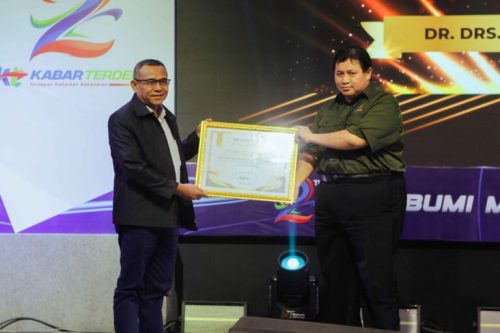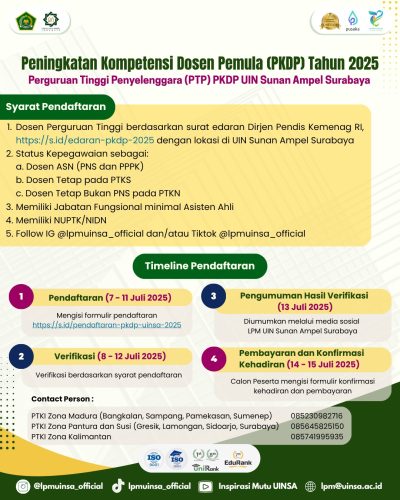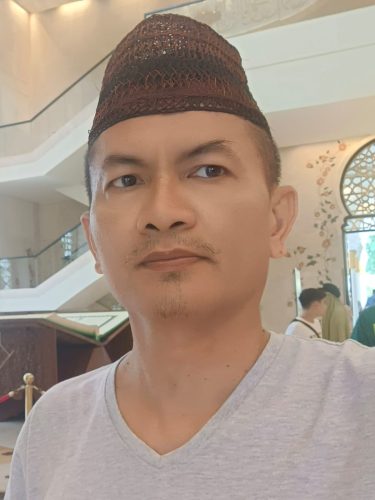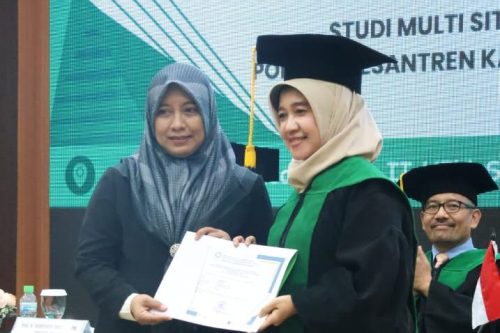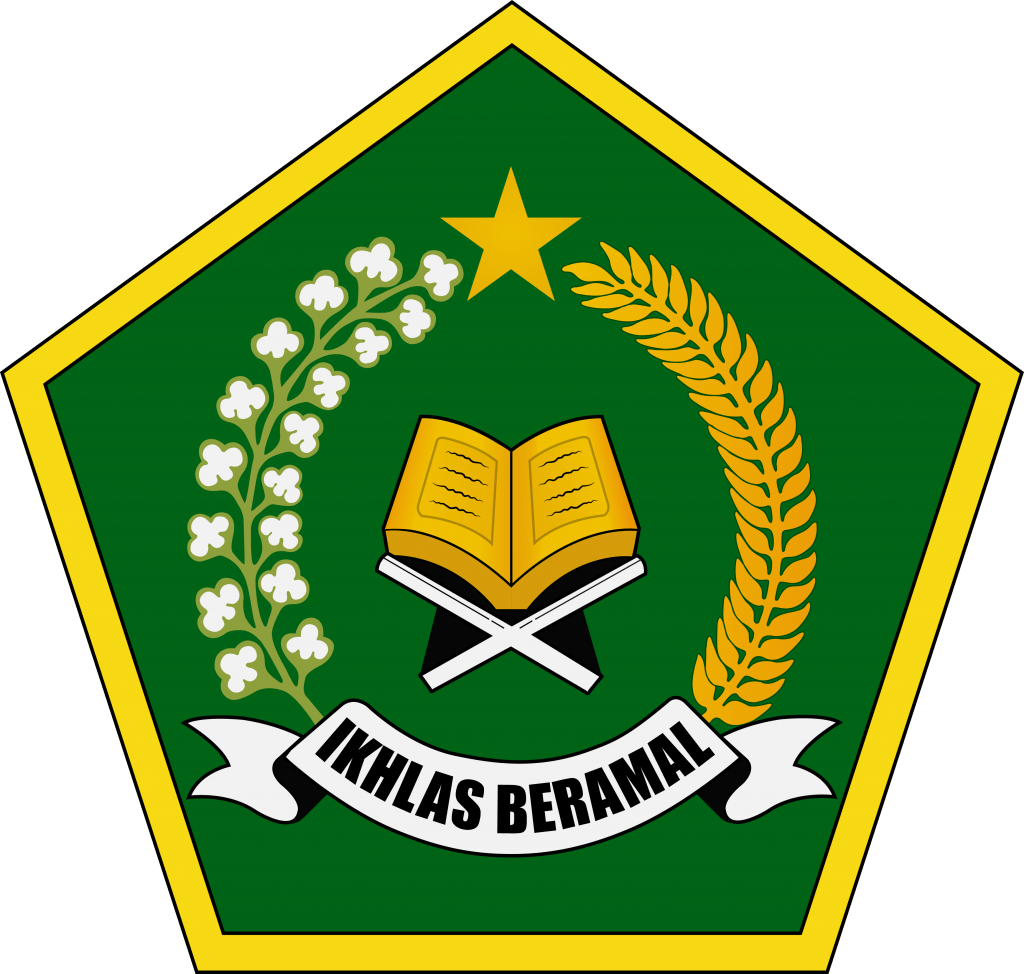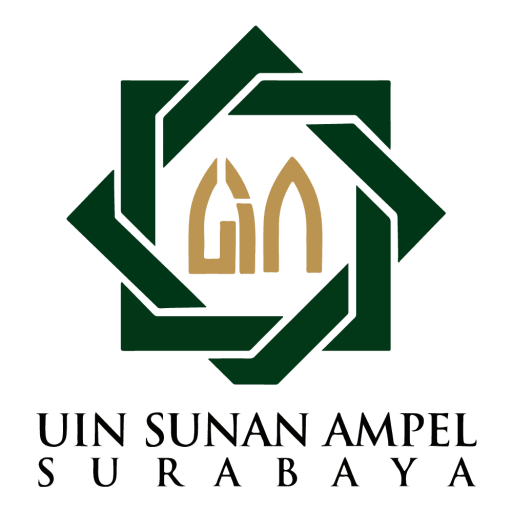The English Language Education Department of the Faculty of Tarbiyah and Teacher Training at UIN Sunan Ampel Surabaya (UINSA) hosted a stimulating Research Discussion Forum on September 22, 2023. The event welcomed distinguished guests, including Professor Muhammad Thohir, M.Pd as the dean of Faculty of Education and Teacher Training and the head of the English Language Department, Rakhmawati, M.Pd, along with participants from various universities. The central theme of the discussion was the sharing session given by the speaker, Corazon Talam Kato from Chubu Gakuin University and College, Japan.
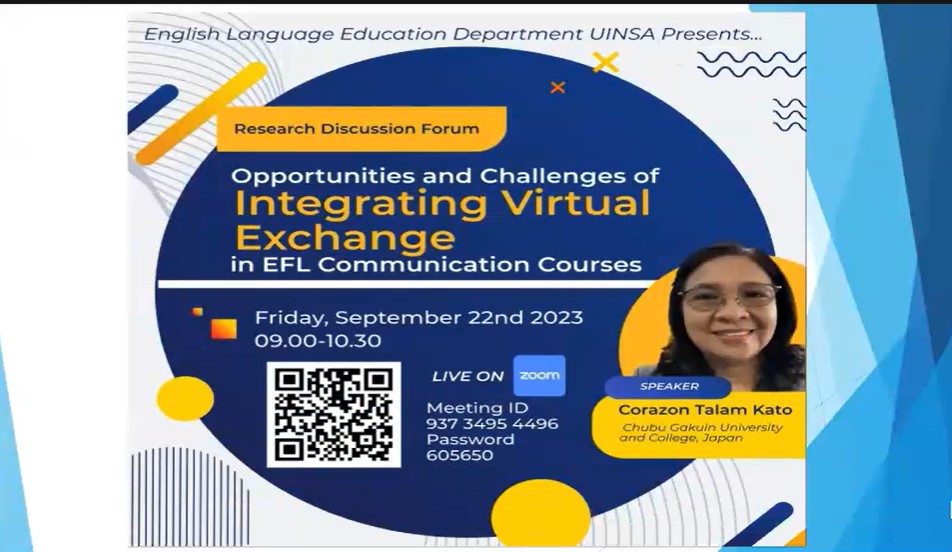
To set the stage, Fitriah Asad, Ph.D as the moderator for the Research Discussion Forum invited the Dean of the Faculty of Tarbiyah and Teacher Training Professor Muhammad Thohir, M.Pd, to deliver a warm welcome address. This speech laid the foundation for the day’s discussions, highlighting the significance of academic collaboration and the manifold benefits of international conferences for professional growth.
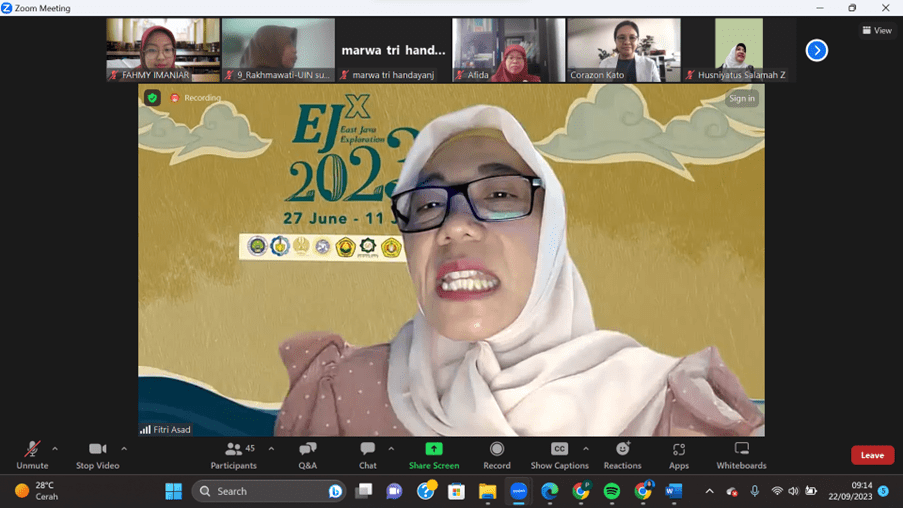
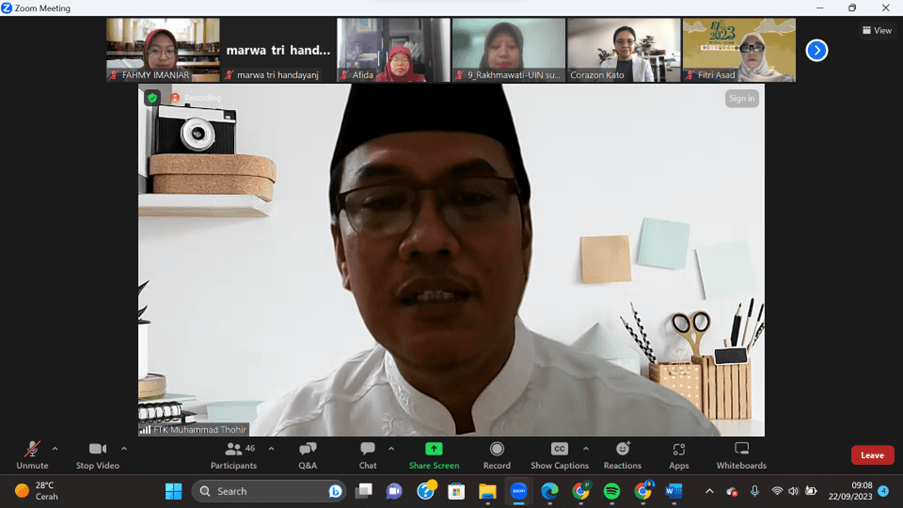
The forum also welcomed Corazon, a distinguished educator renowned for her extensive teaching experience in Japan, the Philippines, and Cambodia. Her expertise encompassed English intercultural communication, extensive reading, teacher training, and young learners. Corazon was poised to present her research findings on the integration of virtual meetings into language courses, a topic that had garnered significant interest.
In this RDF, Corazon, a prominent figure in the field, shared her experiences in integrating virtual exchange into English communication courses, specifically the English as a Foreign Language (EFL) course designed for first-year students. She detailed the opportunities and challenges that emerged during this transformative process.
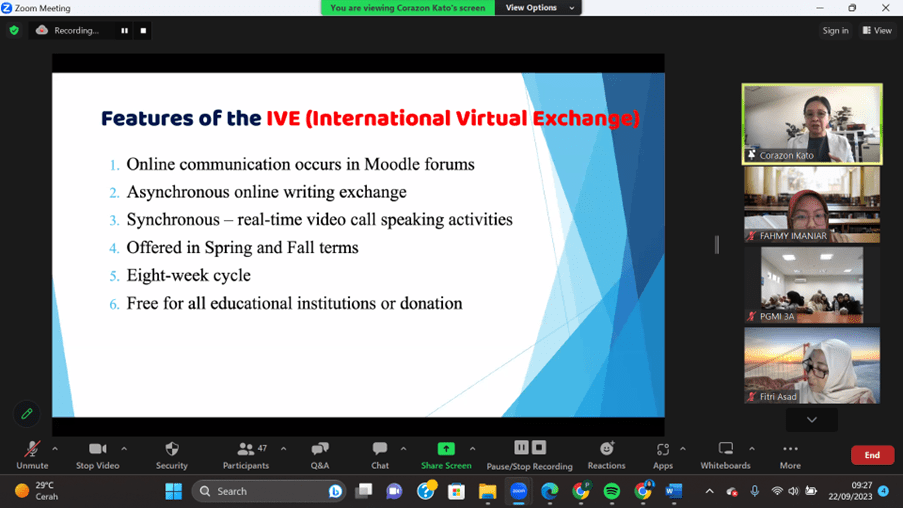
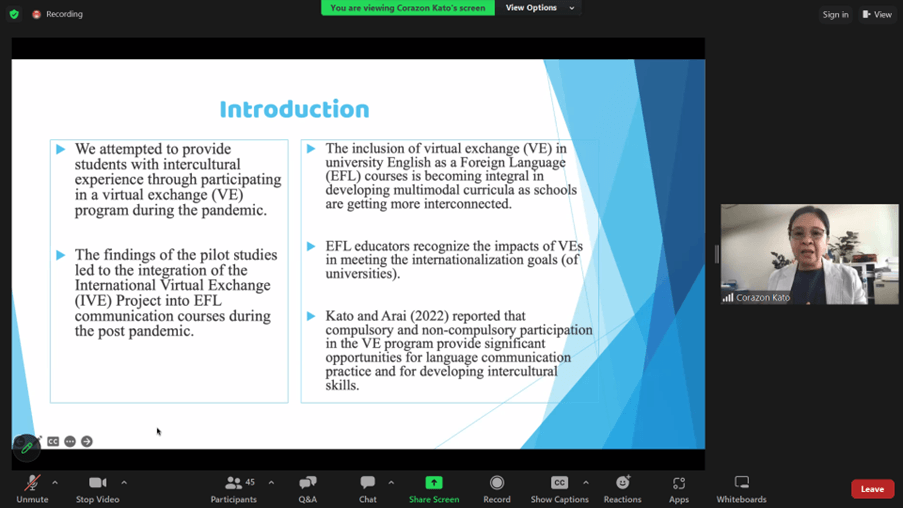
The presentation garnered a positive response, leading to an engaging question-and-answer session. Participants were keen to delve deeper into the intricacies of virtual exchange implementation, demonstrating their genuine interest in this innovative educational approach. The program’s success lay in its ability to enhance students’ intercultural communication skills and English proficiency, all while broadening their horizons and cultural awareness.
This groundbreaking program, where students interacted with peers from diverse countries under the watchful guidance of dedicated teachers, received accolades for transforming the classroom dynamic and revolutionizing pedagogy. Corazon delved into the profound importance of intercultural communication competence, highlighting the challenges involved in cultivating this vital skill within a classroom setting. She underscored the essential prerequisites of knowledge, skills, and attitudes necessary for effective cross-cultural interaction.
Corazon also elucidated the pivotal role of learning strategies, emphasizing students’ capacity to become autonomous learners and manage their learning resources effectively. Successful online learning, she noted, hinged on high motivation levels, minimal internet-related anxiety, cooperative engagement, and adept clarification skills. She shed light on the outcomes of an extensive study focusing on students’ learning development. The research demonstrated remarkable enhancements in intercultural awareness, improved English learning strategies, and heightened autonomy among students. Moreover, it proved instrumental in refining curriculum designs.
Some students reported personal discoveries about their own cultures and substantial improvements in their English proficiency through online interactions. The chosen topics for written exchanges primarily revolved around teenage life. Corazon underscored the significance of attitude and motivation in the development of intercultural communication competence, citing the example of a successful student who possessed both attributes.
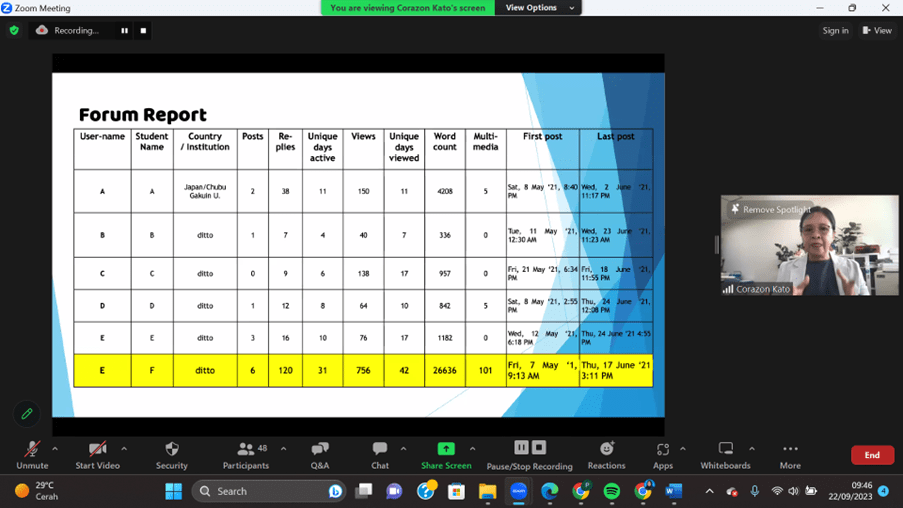
Corazon shared an update about a recent graduate who had embarked on a teaching career in Chile. The graduate’s unwavering dedication to the program was evident in her frequent contributions to the program website, where she posted extensively, replied to others consistently, and actively participated in real-time speaking activities. Her contributions surpassed seven thousand words, equivalent to a substantial thesis. Additionally, the graduate had created promotional videos and consistently demonstrated remarkable engagement. Corazon emphasized the pivotal role of the Forum report, which meticulously tracked student engagement, in motivating and guiding other students to excel.
Corazon delved into the outcomes of an online exchange program designed for students. She noted that an impressive seventeen out of twenty-three students expressed a strong desire to participate in the program again. Students lauded the opportunity to interact with peers from diverse cultural backgrounds, recognizing it as an invaluable avenue for enhancing their English language skills.
Nonetheless, the program revealed challenges, including the necessity for greater individual effort outside the classroom, fostering resourcefulness, and providing support to those with limited language skills or slower reading abilities. Corazon stressed the imperative of consistently bolstering student motivation throughout the program to ensure its continued success.
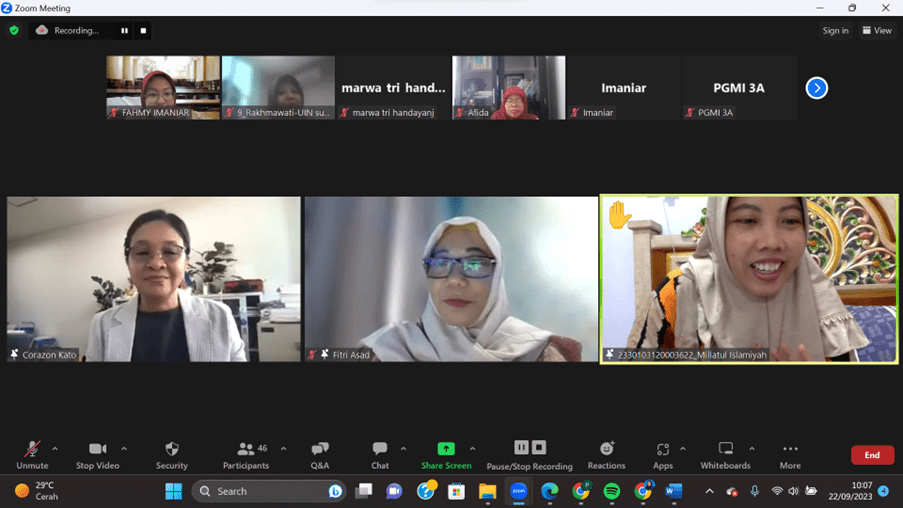
The session culminated in an extensive discussion of an educational program designed to integrate classroom and online activities, potentially constituting a segment of a communication skills course. The online component, a virtual exchange program, entailed student engagement with peers from various countries, reading and responding to texts, and the execution of diverse tasks. The course design incorporated varied assessment methods, including presentations, textbook readings, and written assignments, with a pronounced emphasis on intercultural communication. Participants recognized the immense potential of the virtual exchange project in enhancing students’ engagement and communication skills, although its impact on overall grading remained limited.
Corazon accentuated the substantial potential of virtual exchange programs in facilitating students’ multicultural learning journeys, notwithstanding the associated challenges. She lauded the program’s origin in Japan, acknowledging its provision of significant opportunities for students. Accepting donations was identified as a potential avenue to further bolster and sustain this innovative educational initiative.
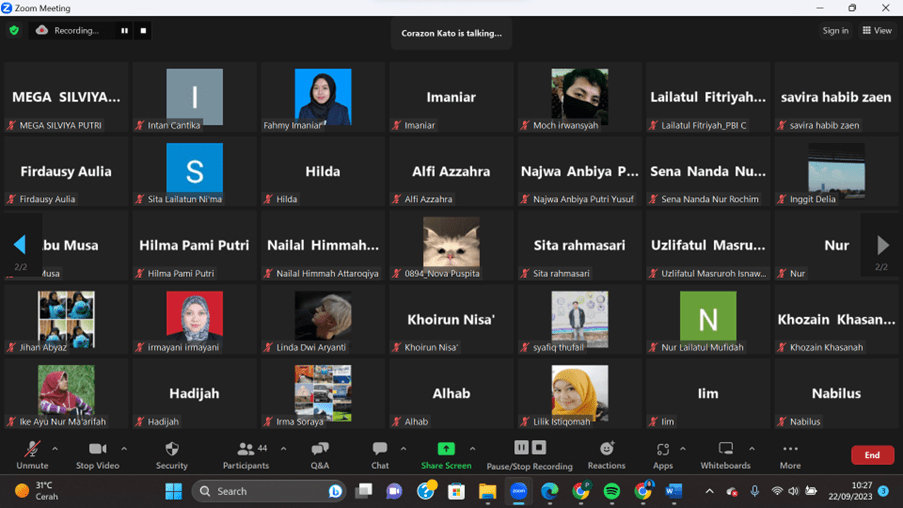
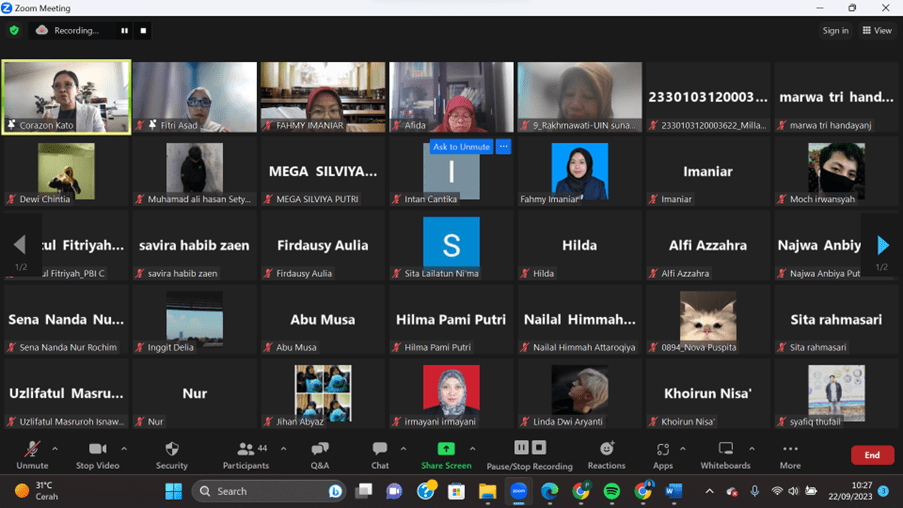
In summation, the current session of UINSA English Language Education Department’s research discussion forum proved to be an enlightening and thought-provoking event, characterized by rich academic discourse and an unwavering commitment to fostering cross-cultural understanding and academic excellence. Corazon and the representatives from the Faculty of Tarbiyah and Teacher Training (FTK), and several other scholars came together to address the critical need for preserving academic culture in a rapidly evolving educational landscape. They emphasized the vital role of collaboration among academic institutions and expressed their intent to embark on collaborative research projects in the future.


